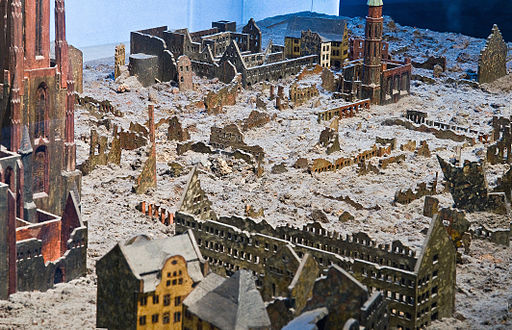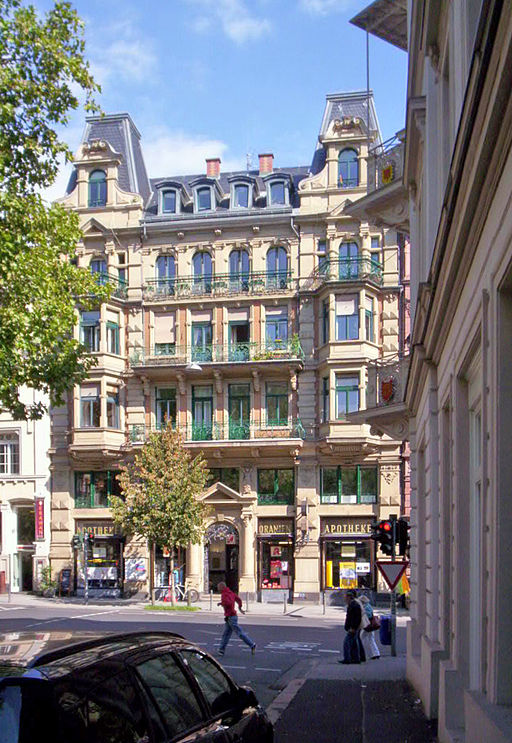A possible candidate is Wiesbaden. According to Wikipedia:
There is a persistant rumour that the U.S. Army Air Force spared the town with the intention of turning it into a postwar HQ, but USAAF sources claim this to be a myth, arguing that Wiesbaden's economic and strategic importance simply did not justify more bombing.[citation needed] Wiesbaden was host to the Headquarters, U.S. Air Forces, Europe based at the former Lindsey Air Station from 1953 to 1973.
American armed forces have been present in Wiesbaden since World War II. The U.S. 1st Armored Division was headquartered at the Wiesbaden Army Airfield, just off the Autobahn toward Frankfurt, until the Division completed relocation to Fort Bliss, Texas in 2011. Wiesbaden is now home to the U.S. Army Europe Headquarters and Mission Command Center.[6]
There were air raids in WWII which according to Wikipedia destroyed 18 percent of the city. However, that is much less than the destruction wrought on Frankfurt am Main, 30 miles to the east, which saw 70 percent destroyed by allied bombing raids.

Architectural model of Frankfurt's old city destroyed in WW II (Historisches Museum Frankfurt). Via Wikimedia Commons.
In contrast to Frankfurt, Wiesbaden has many more buildings from the late 19th and early 20th century in the historicist, classicist, and even art nouveau style. These buildings are lovingly preserved and give this city a much more prosperous and traditional look than
Frankfurt.

1891 building typical of Wiesbaden's cityscape. Via Wikimedia Commons.

